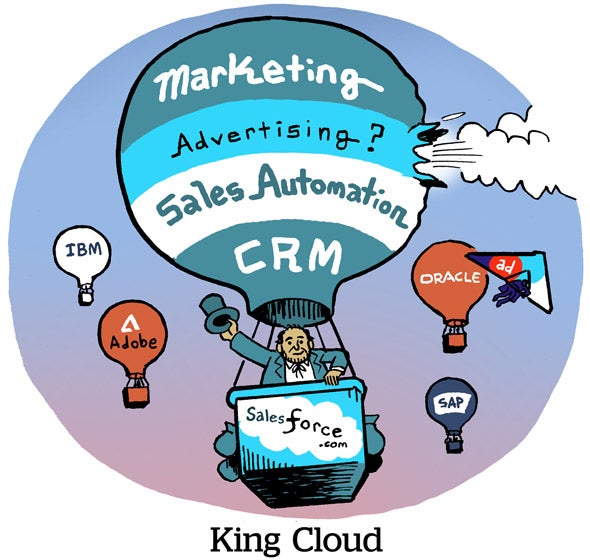Here’s today’s AdExchanger.com news round-up… Want it by email? Sign up here.
Who Wants Usage?
What if streaming TV content goes the way of usage-based pricing? And that dynamic informs deals between content producers and distributors?
Andrew Rosen, who writes The Medium, a newsletter about media and technology, has noticed that when distributors (like DirecTV) cut deals with content providers (think Disney), the distributors end up paying for millions of “zombie subscribers” who don’t watch content. Or ads.
The recent Disney-DirecTV and Warner Bros. Discovery-Charter deals show that the companies are locked into the model of trading users within a bundle, rather than taking the plunge and moving to how people pay for AWS (or water or electricity).
He thinks there is a better way. Companies like Apple or Oracle might be the first streaming services to pay content owners by usage, not lump sum amounts based on sign-ups. He believes this dynamic will ultimately help content producers, since they need not just subscribers, but active users who watch ads.
Oracle seems like a head-scratcher, but Rosen points out that CEO Larry Ellison’s family now control Paramount.
Meanwhile, Unity, a mobile game engine, plunged in with a controversial announcement one year ago that it was switching to a “Runtime Fee,” charging developers per download of a game, rather than per SaaS account seats. More than half of all mobile game developers use Unity software.
Last week, however, Unity abandoned the new model. Unity customers “understand that price increases are a necessary part of what enables us to invest in moving gaming forward,” writes CEO Matt Bromberg in a blog. “But those increases needn’t come in a novel and controversial new form.”
MAGNA Cum Laude
An ad forecast from IPG Mediabrands’ MAGNA paints a rosy picture of the ad industry’s outlook.
According to the report’s author, EVP of Global Market Intelligence Vincent Létang, this year’s forecasted growth of 8.9%, up 0.7% from their previous forecast in June, represents the strongest non-cyclical ad market growth rate in 20 years, not including the “post-COVID rebound of 2021,” which radically skewed year-over-year comparisons.
An influx of ads from both the 2024 presidential election and summer Olympic Games will contribute an estimated $10 billion in incremental ad revenue, increasing total media owner ad revenues 11.4% (up from 10.7% in June) for a whopping $377 billion for the year.
A stabilized economy, “strong demand from brands,” and the rise of retail media networks and ad-supported streaming platforms all contributed to the growth, according to the report.
But unlike another recent report, from advisory and consulting firm Madison and Wall, MAGNA cautions that non-political advertising growth rates are bound to slow in the second half of 2024. So, manage your expectations for Q3 and Q4 accordingly.
Diversity = Dollars
“Go woke, go broke,” just isn’t true, The Guardian reports.
Right wingers who coined the mantra think boycotting so-called “woke” advertising will harm brands’ sales.
But according to research commissioned by the Unstereotype Alliance, inclusive advertising campaigns can boost a brand’s short-term sales by 3% and its longer term sales by more than 16%. It was conducted by researchers at Oxford University’s Saïd Business School based on data from 392 brands across 58 countries.
It’s not the first time that research has suggested diversity is good for marketing – the University of Oregon, the Wharton School and McKinsey & Company came to similar conclusions – but this new study draws the clearest link to actual sales numbers.
This serves a stark contrast to the recent trend of brands pulling public-facing campaigns, going silent during events like Pride Month, and even gutting their internal DEI initiatives to appease conservative backlash.
Unstereotype Alliance’s own findings, released in a state of the Industry report earlier this year, observed that while women are getting slightly more screen time in ads, ethnicity representation has actually decreased, and visibility for both LGBTQ+ and disabled communities is practically nonexistent.
But Wait, There’s More!
Google sheds its nice guy poise as the legal heat dials up. [Digiday]
The Hague becomes the first city in the world to ban fossil fuel advertising. [Splinter]
Companies might be more legally liable for generative AI use than they think. [Axios]
What if banning TikTok just makes everyone move to ByteDance’s other social app, Lemon8? [TechCrunch]












